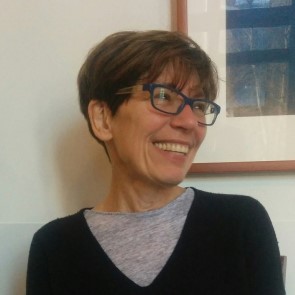
“Antisemitism, Gender, and Mobility: The Impact of the Numerus Clausus Law in Hungary, 1920-1948”
Professional Background
Judith Szapor is Associate Professor in the Department of History and Classical Studies at McGill University, Montreal. Following B.A., MA. and D.Phil. degrees in Hungarian and Eastern European History and Aesthetics at ELTE Budapest, she completed her Ph.D. in Modern European History at York University in Toronto. She has been awarded postdoctoral fellowships at EHESS, Paris, and The University of Toronto, the latter funded by the Social Sciences and Humanities Research Council of Canada. Her research has also been supported by the Social Sciences and Humanities Research Council of Canada and the Fonds de recherche du Québec – Société et culture, as well as senior fellowships at the Wiesenthal Institute for Holocaust Research in Vienna (2018) and the Institute for Advanced Study of Central European University in Budapest (2020).
Dr. Szapor has written extensively, as well as co-edited collections of essays on intellectual, women’s, and student movements, and the intellectual migration in the late 19th and the 20th centuries in Hungary and Central Europe. Her first monograph on three generations of women of the Polanyi family, The Hungarian Pocahontas: The Life and Times of Laura Polanyi Stricker, 1882-1957 (Columbia University Press, 2005), was also published in a revised Hungarian edition in 2017. Her second monograph, Hungarian Women’s Activism in the Wake of the First World War; From Rights to Revanche (Bloomsbury Academic, 2018), offers an alternative, gendered history of the postwar revolutions and counter-revolution. As a member of two international collectives of European women’s and gender historians, she has been contributing to comparative volumes on political women – both on the Left and the Right – in the interwar period.
Fellowship Research
During her fellowship at the Mandel Center for Advanced Holocaust Studies, Dr. Szapor will work on her third monograph on the legacy of the so-called numerus clausus law, the first anti-Jewish legislation in postwar Europe, enacted in Hungary in 1920. She argues that not only did the law prepare the ground for the infamous anti-Jewish laws of the 1930s but it influenced the modernization of Hungarian society in ways that reached beyond WWII. Her research complements recent work on the history of academic antisemitism in East Central Europe and breaks new ground in its focus on Hungarian Jewish women. Before WWI, they were the pioneers of higher education and the professions; following 1920 they were ostracized by university admission practices and illiberal government ideology, both as Jews and as emancipated and politicized women. Hungarian Jewish women born between 1900 and 1925 lived under the shadow of the law, trying to fulfill their ambition to study under exceptionally hostile conditions. One of the conclusions drawn from a rich evidence of over 150 case studies is that, whether they ventured abroad to study, reluctantly entered a trade, became victims of the Shoah or survived, they continued to play a leading role in progressive intellectual and artistic movements, ranging from reform pedagogy to modern dance and from psychoanalysis to photography, in Hungary and abroad. The monograph will seek answers to the following questions: What happened to women’s emancipation when, overnight, the main engine of the process, daughters of upwardly mobile Jewish families were barred from higher education? What alternatives emerged at home and abroad and how did socio-economic, economic, and cultural factors determine access to them? How had the state’s breach of equal citizenship shaped the course of Jewish assimilation?
